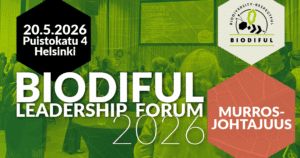Ahvenharju, S., Lalot, F. & Räikkönen, J. (2025). Effective, Fair or Intrusive? The Role of Futures Consciousness in Environmental Policy Acceptance. Journal of Environmental Psychology. https://doi.org/10.1016/j.jenvp.2025.102777
Abstract
As the current environmental crisis unfolds, there is an increasing call for stronger governmental action to accelerate societal transformation. The challenge lies in better identifying and understanding the factors that influence public acceptance of new environmental policies, particularly those targeting consumer behavior. Future orientation is recognized as one of the factors that motivate individuals to protect the environment and promote transformation towards biodiversity-respecting futures. This article examines whether individual differences in futures consciousness – a multicomponent conceptualization of future orientation with special emphasis on considering collective futures – translate into greater acceptance of consumer-targeted environmental policies. Two preregistered studies, one involving a convenience student sample from the UK (N = 266) and the other a representative sample of the Finnish population (N = 2005), explored respondents’ futures consciousness and their perceptions of the effectiveness, fairness, intrusiveness, and their acceptance of selected pro-environmental policies. Results showed that futures consciousness was positively related to policy acceptance, and this effect was fully mediated by perceptions of policy effectiveness and fairness (Studies 1-2), but not intrusiveness (Study 2). These results highlight the potential role of futures education in tackling political divides and supporting transformation towards sustainable planetary futures.
Highlights
- We investigate the role of future orientation for policy acceptance.
- Futures consciousness (FC) relates positively with environmental policy acceptance.
- The effect is mediated by perceived fairness and effectiveness, not intrusiveness.
- Fairness is the most critical factor for policy acceptance.
- FC is especially suited to study collective outcomes such as environmental policy.
Reseachers
Further information and interviews: Sanna Ahvenharju, Juulia Räikkönen
PhD, M. Soc.Sc., Deputy Director Sanna Ahvenharju (sanna.ahvenharju@utu.fi) works at the Finland Futures Research Centre (FFRC) as a Senior Research Fellow on projects related to futures consciousness and future thinking, as well as biodiversity protection, overconsumption and environmental policies. She has developed the five-dimensional concept of Futures Consciousness and the Futures Consciousness Scale together with her colleagues. In the BIODIFUL research project, Sanna in involved in work packages 3 Consumption and 5 Society.
Adjunct professor, D.Sc. (Econ. & Bus. Adm.) Juulia Räikkönen (juulia.raikkonen@utu.fi) works in the Biodiversity Unit of the University of Turku as a University Research Fellow. Her areas of expertise include biodiversity, consumer behaviour, experiential consumption, tourism, and wellbeing. In the BIODIFUL research project, Juulia coordinates the work package 3 Consumption.


